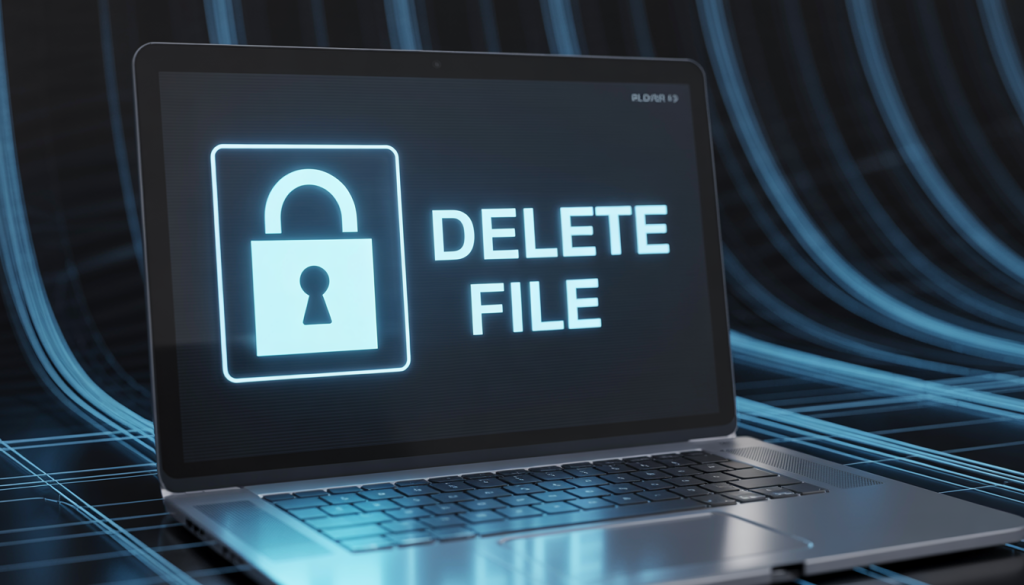
A clean and optimized PC enhances your experience and ensures your system operates efficiently. Regularly deleting junk files is a simple yet effective way to achieve this. These unnecessary files can slow down your computer, impacting productivity.
By learning how to delete junk files and clean up your PC, you can enjoy these benefits.
- Boosted speed: Removing clutter can significantly enhance your computer’s speed. Discover how fast your computer can be with our insights.
- Enhanced performance: A tidy system reduces errors and crashes, ensuring smoother operation. Learn how to fix errors, crashes, and freezes.
- Increased storage space: Free up valuable space on your hard drive for important files and applications.
What Are Junk Files?
Junk files accumulate over time as you use your computer. They include:
- Temporary internet files: Stored by browsers to speed up web page loading but can pile up fast
- System cache: Files created by your operating system to store temporary data
- Setup files: Leftover files from software installations that are no longer needed
- Recycle bin contents: Files you have deleted but not permanently removed
Over time, these files can consume significant space, slowing down your PC. According to Microsoft Support, regularly cleaning out these files is crucial for a healthy system.
Steps to Clean Up Your Windows PC
Keeping your PC tidy is key to maintaining speed and performance. Here’s how to delete junk files and clean up Windows.
- Use Disk Cleanup: Windows offers this built-in tool to remove unnecessary files.
- Search for ‘Disk Cleanup’ in the Windows search bar and open it
- Select the drive you want to clean, usually the C drive, and click ‘OK’
- Disk Cleanup calculates space you can free up. Check file types to delete, then click ‘OK’
- Delete temporary files: Temporary files can slow down your PC.
- Press ‘Windows + R’ to open the Run dialog box
- Type ‘%temp%’ and press ‘Enter’ to open the temporary files folder
- Select all files and delete them
- Clear browser cache: Improve browsing speed by clearing cache.
- Open your browser settings
- Find the option to clear browsing data
- Select the time range and data types to delete, like cache and cookies
- Use automatic tools: Consider using automatic cleanup tools for efficient management. These tools scan your PC and remove junk files easily. Learn more about cleaning out system-clogging clutter.
Regular cleanup not only frees space but also enhances PC performance. For more guidance, refer to the Microsoft Support page.
How to Remove Unwanted Files from Your Computer
Identifying and removing unwanted files keeps your computer neat and efficient. Here’s how.
- Identify large files: Use file explorer to sort files by size and remove large, unnecessary files.
- Organize files and folders: Regularly organizing files into folders prevents clutter and simplifies finding and deleting unwanted files.
- Use third-party software: Consider using third-party software like System Mechanic® Pro® or System Mechanic® Ultimate Defense™ for comprehensive file management and removal. These tools can identify duplicate files and other unwanted data.
By managing your files regularly, you ensure your computer runs smoothly and efficiently, maintaining good PC performance and preventing potential errors and crashes.
Optimize Your C Drive for Best Performance
Maintaining a clean C drive ensures your PC runs smoothly. Here’s how to clean up your C drive.
- Uninstall unused programs: Go to ‘Control Panel’, select ‘Programs and Features’, and uninstall software you no longer use.
- Manage large files: Use File Explorer to search for large files, sort them by size, and decide which to delete or move.
- Use disk cleanup: Search for Disk Cleanup in the Start menu, select the drive to clean, and follow prompts to remove unnecessary files.
- Monitor disk space: Regularly check disk space usage to prevent clutter. Learn more about monitoring disk space at Monitor Disk Space | Microsoft Learn.
Achieving Long-Term PC Performance
Maintaining your PC over time requires regular care. Consistent upkeep prevents issues and keeps your computer fast and efficient. Here’s how.
- Perform regular maintenance: Schedule routine check-ups to clean up junk files and remove unnecessary programs, avoiding slowdowns and crashes.
- Use optimization software: Tools like System Mechanic® Pro® and System Mechanic® Ultimate Defense™ automate maintenance tasks, ensuring smooth PC operation without constant manual intervention.
- Stay updated: Regularly update your software and operating system for the latest performance improvements and security patches.
By integrating these practices, you enjoy a more reliable and efficient computing experience. Explore iolo’s products for comprehensive solutions supporting your PC’s health and performance.








